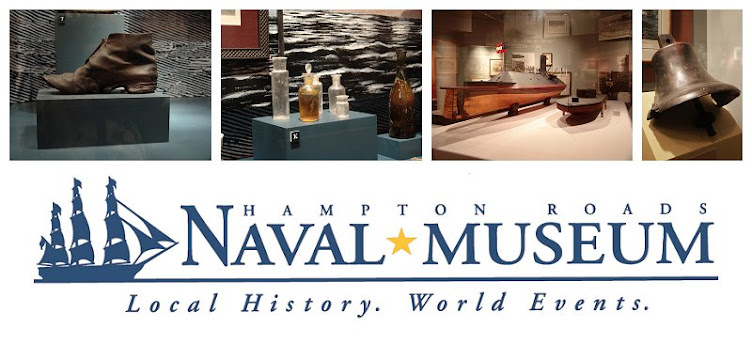By Dr. Ira R. Hanna
HRNM Volunteer
 |
| Invisible Giants |
Bancroft was the eighth of the thirteen children of Aaron Bancroft. He was very precocious and entered Harvard University at the age of 13. He graduated with honors and was offered a scholarship to study at Georgia Augusta University in Gottingen, Germany. In 1820, he was awarded a Doctorate of History, then returned to America and taught history at Harvard. Soon afterwards, he married Sarah Dwight, daughter of a prominent merchant/banker. Unfortunately, she died after the birth of their third child. In 1838 he married Elizabeth Bliss, a widow. During that time, as Collector of Customs of the Port of Boston, he helped form a Democratic Party “machine” in Boston that still exists today. In 1845, Bancroft was a leading figure in the Baltimore Democratic National Convention that nominated James K. Polk. When elected president, Polk rewarded Bancroft by nominating him to be Secretary of the Navy. During his short tenure as SecNav, Bancroft did two things for which Americans should be eternally grateful.
 |
| George Bancroft (National Portrait Gallery) |
After only 18 months as SecNav, Polk offered Bancroft the Ambassadorship to Great Britain. There, he laid the groundwork for England’s support during the Civil War. He also served as Ambassador to Prussia during the term of Republican president Ulysses S. Grant. Bancroft wrote speeches for Stephen Douglas in 1860 and Andrew Johnson in 1866. His own writings formed the core of the Democratic Party’s platform that lasted for over forty years.
Although Bancroft criticized Lincoln when he was first elected, he changed his mind as the Civil War progressed. He agreed with emancipation in 1862 and voted for Lincoln in 1864 although he was still a Democrat. In February 1866, Bancroft gave a eulogy for Lincoln before the House of Representatives.
George Bancroft died in 1891 at the age of 90. John Adams was president when he was born and Theodore Roosevelt attended his memorial service. Of the many unrecognized persons in American history, Bancroft certainly deserves not only to be mentioned in our history books, but given a prominent place.
Reference:
Schlesinger, Jr., Arthur. "George Bancroft." Invisible Giants: Fifty Americans Who Shaped the Nation But Missed the History Books, edited by Mark Carnes. Oxford University Press, 2002, pp.23-31.

No comments:
Post a Comment